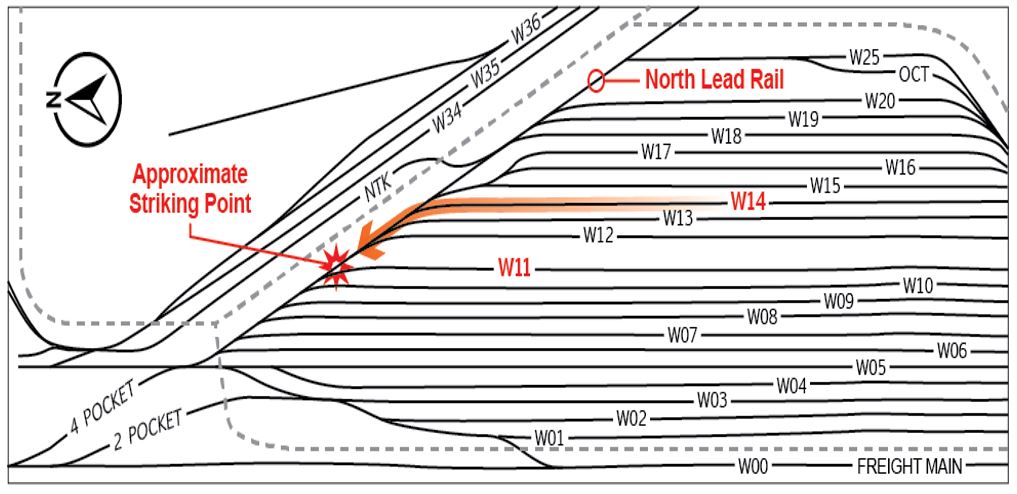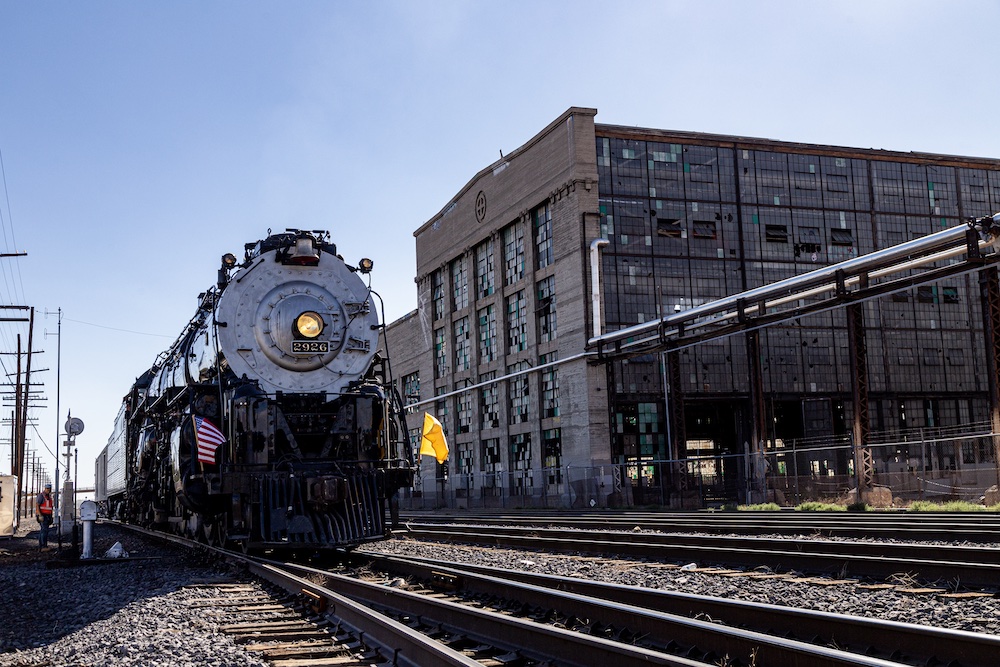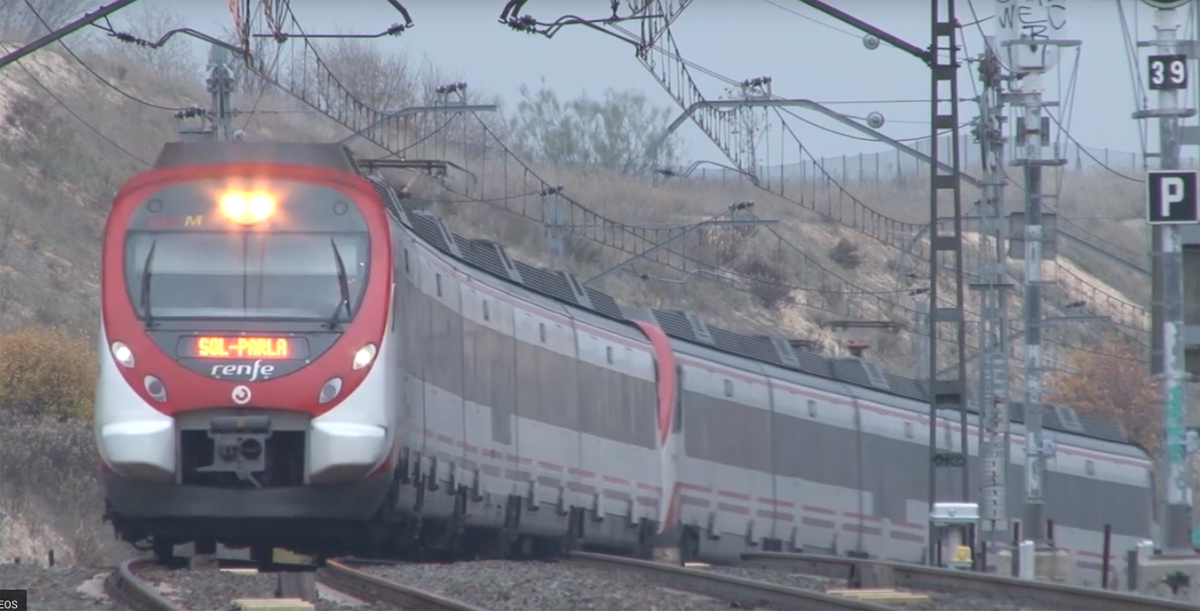Get a weekly roundup of the industry news you need.
WASHINGTON – The National Transportation Safety Board has released it preliminary report on an employee fatality at a CSX Transportation yard in Chattanooga, Tenn.
According to the report, on April 13, 2019, about 5:40 p.m., a CSX mechanical employee was struck and killed by a remote-control locomotive, operating as train Y292-13, that was being used to switch railcars at the north end of the Wauhatchie Yard.
NTSB investigators reviewed video images recorded by a stationary yard camera. They saw that the employee, who crossed the north lead at a 45-degree angle with his back towards the radio-controlled locomotive, was struck and killed.
Parties to the investigation include the Federal Railroad Administration; CSX Transportation; the International Association of Sheet Metal, Air, Rail and Transportation Workers; the Brotherhood of Locomotive Engineers and Trainmen; and the Brotherhood of Railway Carmen.
The agency has not determined a probable cause at this time.













First, I am amazed that the NTSB released this report while the incident has yet to go to the courts for adjudication of responsibility and liability.
Second, I am horrified that the commenters here don’t realize it was the great and powerful CSX Corporation that released this report to lay blame on the deceased Mechanical Department employee, thereby hopefully washing their bloody hands of the affair before they’ve even been called to court.
And TRAINS magazine is an accomplice in this sorry ruse.
Gerald, that certainly makes sense to me. I don’t see this as much other than an employee not paying attention when crossing tracks. What a shame.
And, after nearly 23 years of railroading, this incident really hit home for me, as I thought back a few months to a situation that happened to me…
I was working an outlying local job and we have a small yard where we switch, store, and sort out customer cars to spot. Two Max Speed mains pass by our yard and one night we were called upon to assist a train making a setoff whose handheld radio had quit. He was on the main farthest away and I stepped over to meet the conductor and hand him my radio. After a few words I went to head back across to my engine and wait. I was just about to step out from the train when “whoosh!” a set of black locomotives zipped by in front of me! Talk about a freakin’ wake-up call! I don’t want to get in to “what ifs” and such, but you know how that goes. I still can’t believe that with all the experience I have, and have seen/heard/read, that I could do something as thoughtless as stepping out in front of a train. I have always tried to be especially careful to keep from getting run over, and yet here I was, a mere two seconds separating life and likely death. I still hear the words of my late dad say “mental vacation”…
This yard (my workplace) has several zones and they are clearly marked. The only spot the RCO has to provide point protection in most cases when zone is open, is the switching lead, which only runs out about 30 car lengths to a big pile of dirt (hill). And then, only when initially using the lead to “sweep” it. But, on the other end of the yard, occasionally they do switch on that end and it requires protection… Odd…I don’t believe we’ve ever gotten the pucks installed that stop the unit after it passes over it…
This RC Operator is a very conscious worker and just happened to be down in a track to maneuver a car or two and in pulling back out to continue switching, he was up riding second unit steps, again in his fully protected open zone. At our location it’s rare that the RCO is not at the front of every move—this particular day it seemed like everything lined up against our man…still hard to believe that it happened to us. We’re a close family here, and we’re still feeling terrible pain of losing or friend and colleague…
I notice how everyone just ignores this one statement in the article: “NTSB investigators reviewed video images recorded by a stationary yard camera. They saw that the employee, who crossed the north lead at a 45-degree angle with his back towards the radio-controlled locomotive, was struck and killed.” Isn’t also the responsibility of the mechanical employee to be aware and alert about his surroundings to make sure there are no moving trains?
It all depends. A remote control operator still needs to provide “point protection”, that is being watching the movement and any obstructions in advance of the movement. However, under certain conditions a “Remote
Control Zone” can be created where unprotected movements can be made within the zone. This requires notification to employees about the zone being established and at least in some cases I am aware of, special equipment on the locomotive that prevents the engine from exiting the zone.
Not sure of the specifics of this situation. Tragic nonetheless.
where was the back-pack operator of the loco situated? Does he need to see where he is directing the unit to go?
do remote/beltpack locomotives still sound the horn when they stop, move forward or in reverse? seems like a reasonable future action to undertake
A crewless cab can’t sound an alarm. This reduction in manpower is truly a function of fat cat greed.
Before I read this I thought “remote control locomotive”
As a retired locomotive engineer I can tell you the cause. No engineer on board the locomotive. This is what happens when the powers upstairs decide to go for financial reasons instead of safety.